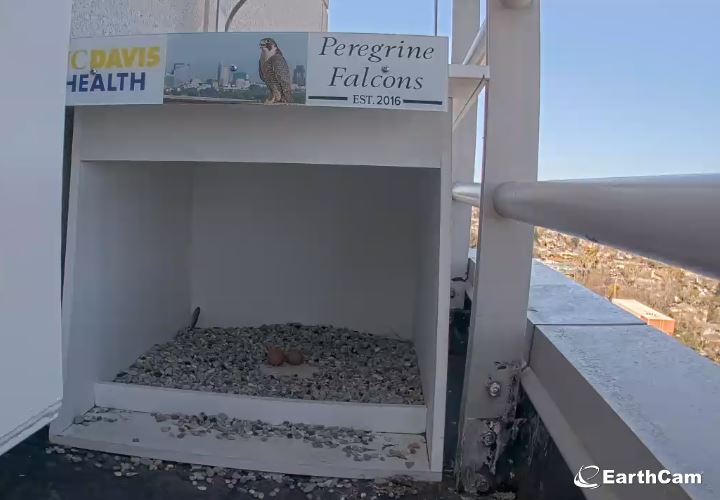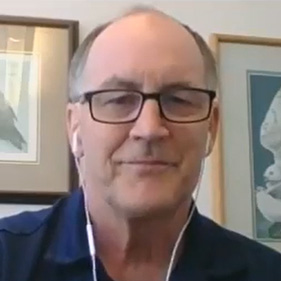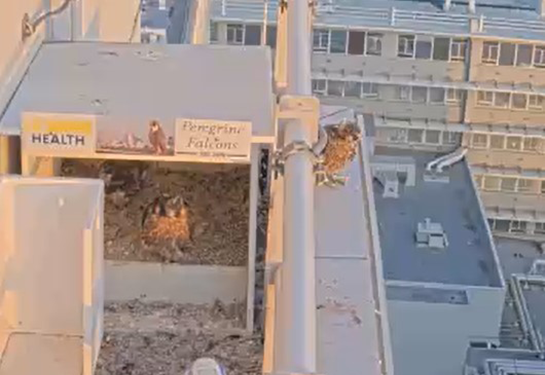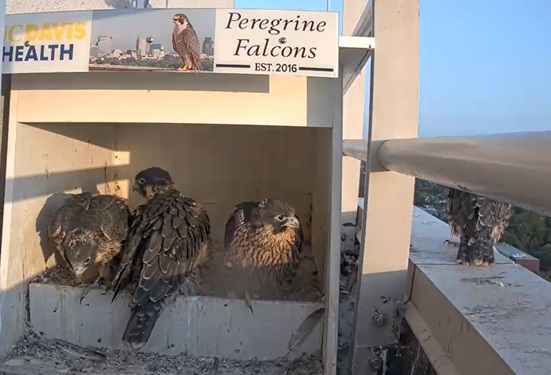‘Birds of a feather’: UC Davis Health’s falcon expert shares his passion for peregrines
William “Bill” Corbett’s official UC Davis Health job title is procurement supervisor. Unofficially, Corbett is also UC Davis Health’s resident falcon expert.
So how does someone who has worked in the Purchasing Department for 17 years become the go-to source for all things peregrine falcon? We asked him!
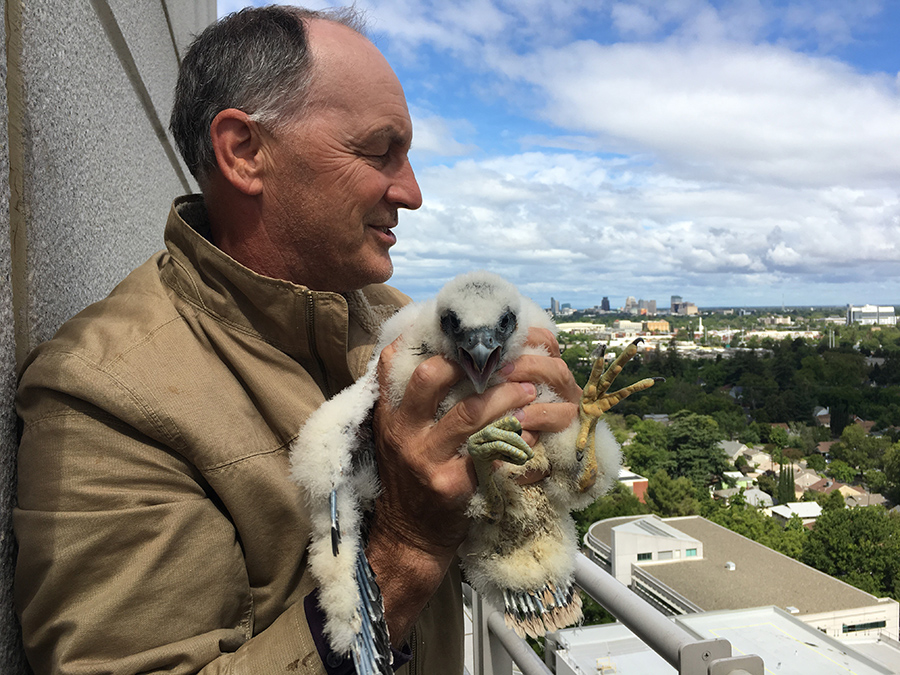
How long have you had this passion for falcons, and how did it start?
When I was a student at UC Davis, my roommate was a falconer, and he introduced me to other falconers who lived in Davis, who then took me along to see their hawks and falcons fly. I became a licensed falconer in 1982 and have kept a hawk since then. I have loved birds of prey since childhood, and when I learned there was a way to keep them and see them hunt up close, I took all the tests to become a licensed falconer.
Walk us through how the falcon adventures began here at UC Davis Health.
I first noticed peregrine falcons flying around our campus in 2018 and saw them land where our current nest is. I got staff from Plant Operations and Maintenance (PO&M) to take me up the elevator to see if there was a nest. I discovered that the birds had laid their eggs directly on the hot roof, and the eggs had gotten so hot that only one bird survived. I built a wooden box for the birds and put gravel in it to lower the temperature, and the following year, three babies hatched successfully. I later built a box with a roof, and now, with the help of Steve McGrath in PO&M, a custom box was built in our carpentry shop, and a new camera was installed to view the birds better.
Not including this year, how many eggs have been laid and hatched?
We have had 22 eggs laid, and only three have not hatched.
Are the birds always the same or different every year?
We have had two different females and two different males.
The fastest-flying animal in the world is right here in our backyard!—William "Bill" Corbett
What is the average number of eggs per season for our birds?
Our birds are very productive, and usually, we get four eggs. Three to four is typical.
What is the most we’ve seen here?
We had five once, which was very unusual because the fifth egg hatched 10 days after the first one. Typically, all the eggs hatch within three days of each other, which has to do with how the parents incubate them.
What makes hosting a peregrine falcon nest at UC Davis Health unique and special?
I think what is cool is that we view something that only happened on remote cliffs, and sightings of peregrine falcons used to be rare. What makes me nervous is when the youngsters start flying in our urban environment. I have had to recover six wayward youngsters who flew too soon and were stranded on the ground. Grabbing the birds and taking them up the elevator back to their nest has been very challenging, so the parents can continue feeding them. One year was especially sad when two of the birds had accidents and could not be saved, and this is not unusual because the first year of a peregrine falcon is full of danger.
If I know nothing about peregrine falcons, why should I be interested? What should I know?
It is fascinating to see how peregrine falcons breed in our urban environment, and with our cameras, you can get up close and see what good parents the birds are. The return of peregrine falcons in great numbers to California is a great comeback story. Only two pairs were known in the early 1970s, and scientists discovered that the pesticide “DDT” should be banned. Dedicated falconers and breeders were able to save the peregrine falcon from extinction. Now, we can watch them right here in Sacramento. The fastest-flying animal in the world is right here in our backyard!
As of this writing, there are now two eggs. If you’d like to check out the live feed, click here.
